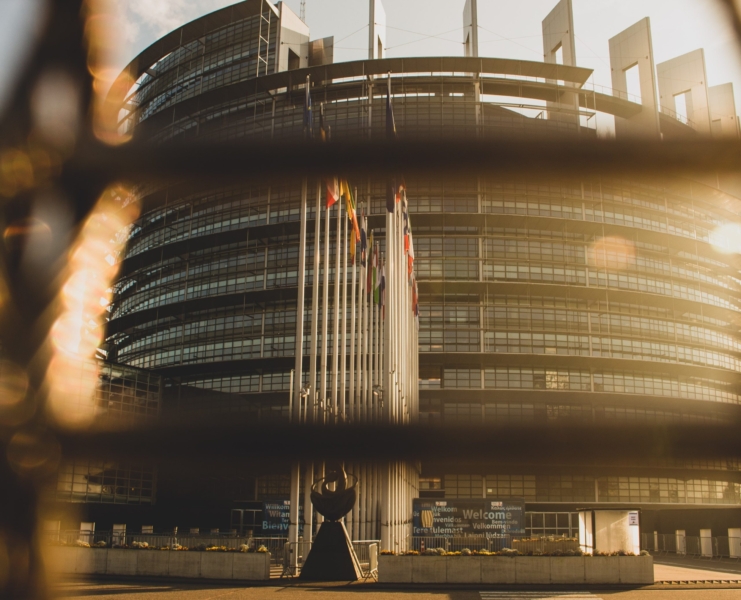In the realm of global economics and political manoeuvring, a disturbing truth persists: sanctions evasion, fuelled by the relentless efforts of both evaders and their complicit enablers, continues to thrive. Currently, the EU is challenged in effectively enforcing sanctions because Member States have different rules on sanctions evasion. This is why the European Parliament formally adopting its position on the Directive that outlines criminal offences and consequences for breaching EU sanctions marks an important milestone in the collective fight against sanctions evasion. The adoption of this Directive is particularly significant given Russia’s ongoing war of aggression against Ukraine and the ensuing adoption of multiple EU sanctions packages.
With the Commission’s proposal already in place, a crucial phase is unfolding, as the European Parliament and Council will be converging on their distinct positions in the so-called Trialogues. The objective of these deliberations is to strive towards a consensus on the final text.
The position taken by the Parliament marks a remarkable step forward in the ongoing battle against sanctions breaches. Unlike the Council’s approach, the text proposed by the Parliament demonstrates a more diligent and inclusive approach, addressing sanctions violations and their enablers, while also offering some safeguards from criminalisation for humanitarian organisations. This blog post will delve into key aspects of the institution’s positions, examining their significance and implications.
To tackle sanctions violations effectively, it is crucial to prioritise the identification and regulation of enablers—professionals with specialised legal knowledge or positions within relevant industries—who can facilitate sanctions evasion. Disrupting them and the network they maintain is a key objective. The Parliament’s proposal to disqualify offenders temporarily or permanently from business activities strengthens the effectiveness of the measures against those involved. Furthermore, the Parliament’s proposition for a more comprehensive definition of legal professionals and clearer guidelines concerning lawyer-client privilege is a welcome step towards ensuring a more robust and accountable system.
With this in mind, the Parliament is also striving to prevent sanctions evasion by addressing intentional rule avoidance. One prevalent method here is, for example, the use of shell companies. These entities can be established with the purpose of concealing the true beneficiaries of financial transactions or facilitating illicit trade with sanctioned entities. Hence, intentional rule avoidance, while perhaps not explicitly breaching the letter of the law, essentially disregards its spirit and oftentimes effectively equates to sanctions circumvention. It allows individuals, oftentimes with the help of so-called enablers, to skirt around economic and financial regulations to the same damaging effect as direct sanctions evasion.
The Council wants to focus solely on “serious violations”, proposing not to cover certain breaches below EUR 10,000. This is a questionable development, as the criminalisation of sanctions breaches should apply to all violations. Furthermore, such a change may allow for loopholes that permit smaller-scale violations to go unpunished—still contributing to a broader pattern of non-compliance.
We further commend the Parliament’s effort to provide a broader exemption for humanitarian aid activities from criminalisation, compared with the European Commission’s initial proposal. TI EU strongly advocates for broad exemptions in favour of the humanitarian sector, as any interference with its work would ultimately harm the innocent civilians caught in crises within sanctioned environments. Unfortunately, the European Parliament’s position could have achieved even greater protection for humanitarian actors had it not encountered such strong opposition from the European People’s Party (EPP), which hindered the advancement of crucial safeguards for those operating in challenging environments. Conversely, the Council has entirely omitted the paragraph that provides exemptions for the humanitarian sector from criminalisation, limiting reference to such an exemption only within its Recitals.
TI EU further supports a Parliament amendment emphasising the importance of confiscating proceeds from EU sanctions violations linked to Russia’s aggression against Ukraine. The aim is to redirect these funds towards Ukraine’s reconstruction efforts and provide compensation to the affected victim population. For an overview of sanctions, asset freezing, and the potential confiscation of assets belonging to sanctioned individuals, see our infographic.
The Council’s stance allowing Member States to provide statistics on EU sanctions violations “if they are available at the central level” weakens the Commission’s original proposal’s obligation for annual data submission. This limitation hinders a comprehensive understanding of offences across all Member States and limits the EU’s ability to address violations due to the lack of comprehensive data.
Lastly, the Council has decided to extend the implementation period of this Directive from six to twelve months. Given the urgent need for decisive action, this is particularly concerning.
Negotiations between the three institutions are expected to start before summer. The ongoing war of aggression by Russia against Ukraine serves as a stark reminder of the pressing need for the EU to fortify its sanctions regimes. The current situation presents a pivotal opportunity for lawmakers to ensure the EU’s sanctions mechanism is effective in protecting European security and values.




